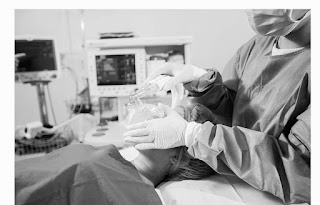Why you should avoid the use of aspirin in children.
The general recommendation to use aspirin in children was withdrawn because of Reye syndrome, with use of aspirin only recommended in Kawasaki disease.
Reye syndrome is a rapidly progressive encephalopathy.
Causes are unknown, but in 90% it appears about three to five days after the onset of a viral infection, such as influenza or chickenpox and aspirin (salicylate) use in children, more often in children having an underlying fatty acid oxidation disorder.
Death occurs in 20-40% cases.
Symptoms:
- rapid onset
- rash on palms of hands and feet
- persistent or continuous heavy vomiting
- personality changes
- confusion, disorientation or hallucinations
- seizures
- excessive lethargy
- loss of consciousness
- deep coma
The precise mechanism by which Reye syndrome occurs is unknown, but there are signs of damaging of cellular mitochondria, at least in the liver.
Some tests are not specific, but can be used to rule out another deseases and ti identify fatty acid oxidation disorders : lumbar puncture, liver puncture, computerized tomography (CT) scan or magnetic resonance imaging (MRI), skin biopsy, electroencephalography.
No specific treatment exists for Reye syndrome; supportive care is based on the stage of the syndrome:
- Correct fluid and electrolyte abnormalities, hypoglycemia, and acidosis.
- Endotracheal intubation, respiratory support.
- Sodium phenylacetate–sodium benzoate is FDA-approved for the treatment of acute hyperammonemia and associated encephalopathy.
- Prevent increased ICP. Elevate the head to 30°.
- Analgesia and sedation.
- Paralytic agents to control shivering.
- If other measures fail, mannitol 20% solution dosed at 0.25-0.5 g/kg IV infused over 10-20 minutes as often as every 6-8 hours.
- Treat seizures with phenytoin 10-20 mg/kg IV as a loading dose, followed by 5 mg/kg/day IV divided every 6 hours.
- Correct coagulopathy with fresh frozen plasma (FFP), cryoprecipitate, platelets, vitamin K, and exchange transfusion.
- Restore the platelet count to a value higher than 50,000/µL.
- Vitamin K 1-10 mg IV.



